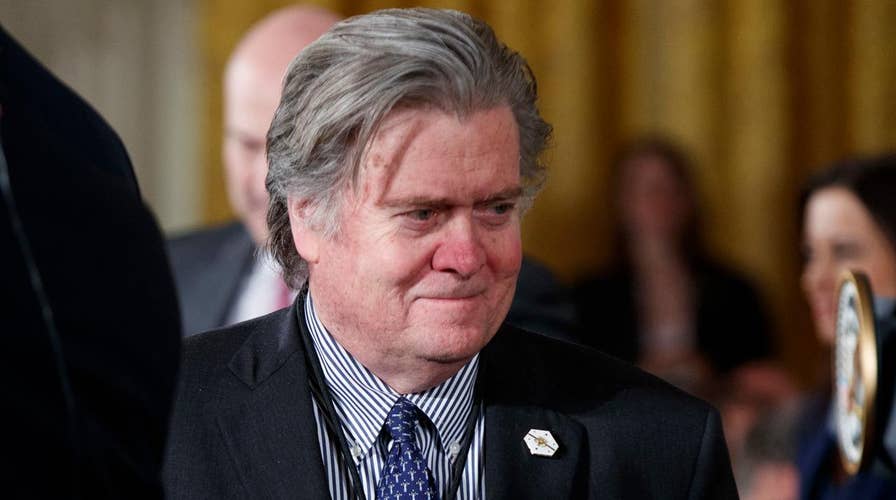Bannon out as White House reshuffles the NSC
Chief White House correspondent John Roberts reports
Stephen Bannon, President Trump’s controversial chief strategist, was removed from the National Security Council on Wednesday and reportedly threatened to resign from the Trump administration.
Rebekah Mercer, a top Republican donor, had to urge Bannon not to quit after he was removed from his post, sources told Politico. Mercer “tried to convince him that this is a long-term play,” a GOP operative said. Bannon reportedly opposed the change and wanted to quit if the president gave the OK.
“It hasn’t all been fun, and I know he’s been frustrated,” one Republican close to Bannon said.
The White House said that Bannon had not attempted to leave the White House and Bannon added that any indication that he threatened to resign was “total nonsense.”
Bannon’s removal from the National Security Council comes as Jared Kushner’s role in the White House has increased. Kushner, Trump’s son-in-law and senior adviser, was recently chosen to lead efforts to cut out bureaucracy from the federal government and visited Iraq in the beginning of the week.
Kushner and his allies reportedly consider Bannon an ideologue whose advice to Trump is hindering the president’s chances to win popular support for his agenda. Kushner has also won over two key West Wing officials, Gary Cohn, the chairman of the National Economic Council, and Dina Powell, the deputy security adviser, who are less ideological in nature, according to Politico.
Bannon’s removal from the National Security Council gives Powell the opportunity to attend the council’s Principals’ and Deputies’ Committee meetings.
Wednesday's reconfiguration also promotes the chairman of the Joint Chiefs, Marine Corps Gen. Joseph Dunford, and Director of National Intelligence Dan Coats to “regular attendees.” Those roles had previously been downgraded.
CIA Director Mike Pompeo, United States Ambassador to the United Nations Nikki Haley and Energy Secretary Rick Perry were also added to the NSC.

























